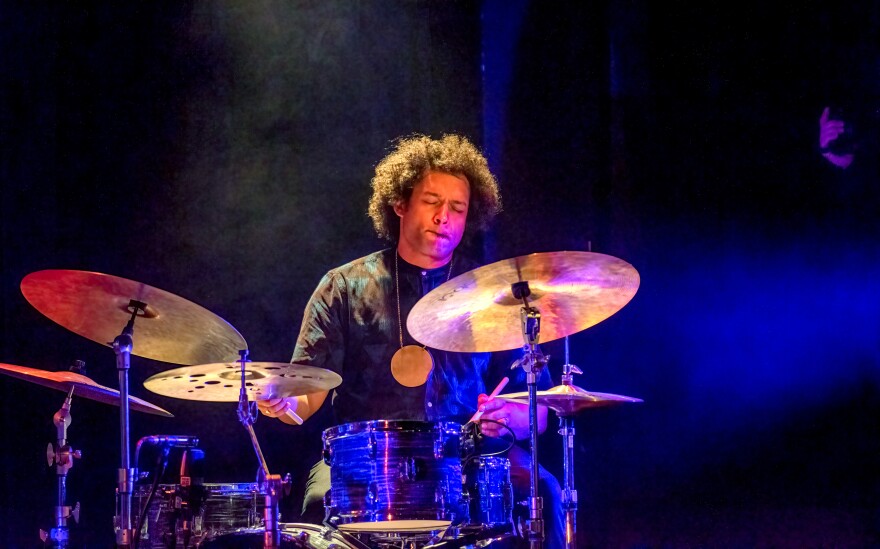It’s Saturday night in Montreal, and thousands of people have descended on the Place des Festivals to hear saxophonist Kamasi Washington. While plenty of devoted fans have come from all over to check out the Montreal Jazz Festival, others simply happen to have discovered the free outdoor concert.
A young couple from Toronto consider their surroundings, and ask that age-old question: “Well, what is jazz?” After mulling it over, one floats an answer: “Organized confusion.”
Organized confusion may not fully explain this music, but it’s a fair description of a festival of this size. Because much of the Montreal Jazz Festival happens in open air, plenty of people who have come to the city for other reasons find themselves in the mix. There are a lot of vectors coming and going on the grounds.
For example, this year the festival coincides with the North American Irish Dance Championships, and the streets are filled with young dancers in costume on their way to compete. What do they make of this? “Have you ever danced to jazz music?” I ask one of these dancers.
Her reply: “Typically if you dance to something it has a steady beat and I don’t know enough about jazz to know if it has that.”
OK, fair enough. But drummer and self-described "beat scientist" Makaya McCraven can help answer that question. His three-night residency at the festival this year showcased the many sides of his music, from hip-hop to the avant-garde. Whatever you call it, it’s music you can dance to, and definitely connects with the audience. In fact, McCraven thinks the word "jazz" is part of the problem.

“Terms of genres are always going to be limiting and they serve a purpose for speaking about something that’s abstract," he says. "In a lot of places these days, jazz festival means ‘music festival.’ I saw one act I was walking by, I’m not sure who it was, but it was her and she’s got a DJ…”
I interject: “Noga Erez.”
McCraven adds: “I thought, ‘there’s not even an acoustic instrument there.’”
He’s right. Israeli singer Noga Erez might not be the most expected act for a jazz festival, but she certainly knows where she is, and even pointed out the irony of how she got here, starting out with jazz and pivoting to pop to get the gig. "I grew up listening to jazz," she says. "All of my childhood that was my thing. I tried to be a jazz vocalist. At some point I was like ‘all the others are so much better than me.’ I really wanted to perform at Montreal Jazz Festival because I heard so much about it. I’m here even though this not really jazz.”
There’s no question that rising star vocalist Samara Joy is “really jazz.” She just graduated from college a year ago, and this is the first jazz festival she’s ever been to, and she’s not sure how she feels about the organized chaos.
"This is the first big festival that I’ve ever performed at," she reflects. "I haven’t even been to a big festival like this. It’s cool to be a part of in this way and have it be received pretty well since it’s a small intimate set… and I kind of like those spaces better.”
True, it’s not a small intimate space where rising stars like Samara Joy honed their chops, but there is one advantage to the festival format, and singer Gregory Porter sums it up nicely. "The audience is quite hungry for music, and to be together," he says. "The whole thing that's involved: communicating with the audience, and having conversations with other musicians. [It's] a slice of normal life — at least, the abnormal life that is normal for traveling musicians."
However you label it, a festival like this gives people a way to gather not only around the music, but also around each other.



